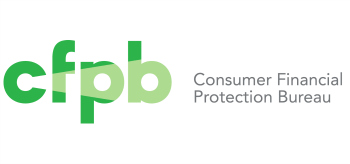Who are the U.S. Financial Regulatory Agencies, and What Do They Do?
The financial system in the United States has a number of regulatory bodies designed to protect consumers and make sure that the system continues to work efficiently. Understanding who these regulators are, and what they do, is important. These bodies set the rules and standards that financial institutions have to adhere to.
Federal Reserve Board
Many of us are familiar with the Federal Reserve System. It is our central banking system, and it is overseen by the Federal Reserve Board. This body is in charge of supervising the banking system, and overseeing banks. The Federal Reserve Board also makes some consumer protection regulations.
However, most people recognize “the Fed” for its role in setting monetary policy. The Federal Reserve Board (through the Federal Open Market Committee) sets benchmark interest rates, and controls the purchase and sale of Treasuries.
Visit the website: http://www.federalreserve.gov
Consumer Financial Protection Bureau
This new regulatory agency is tasked specifically with protecting consumers, especially from predatory banking practices. The agency will make rules about fees that can be charged, and encourage transparency from lending institutions. Consumers can get information on line and even file a mortgage complaint or a credit card complaint.
Visit the website: http://www.consumerfinance.gov
Federal Deposit Insurance Corporation

The main purpose of the FDIC is to make sure that checking and savings deposits at banks are safe. Banks are supposed to pay insurance premiums to the FDIC. When a bank fails, depositors can get their money if it is in an FDIC insured account. The FDIC currently insures up to $250,000 kept in a single institution
(there are ways to increase the amount you are insured by).
Visit the website: http://fdic.gov

Financial Industry Regulatory Authority
If you want to purchase securities, you want someone licensed by FINRA. This organization is meant to regulate brokers. FINRA trains financial services professionals, testing them and licensing them. Additionally, FINRA can oversee disputes between customers and their brokers.
Visit the website: http://www.finra.org/
Securities and Exchange Commission

The point of the SEC is enforce the laws that govern the securities industry. This is one of the most powerful regulatory bodies right now. Most of the investment exchanges, including stock exchanges, options markets and electronic markets, are regulated by the SEC. The SEC is responsible for enforcing a number of federal securities acts including the Securities Act of 1933, the Trust Indenture Act of 1939, the Investment Company Act of 1940, the Investment Advisers Act of 1940, the Sarbanes–Oxley Act of 2002 and other statutes. The SEC was created by section 4 of the Securities Exchange Act of 1934.
Visit the website: http://www.sec.gov/
Office of the Comptroller of the Currency

The soundness of the banking system is the charge of the OCC. When the National Currency Act was passed in 1863, this agency came into being. It is one of the oldest federal regulators. The OCC provides charters to banks that want to operate in the United States. It is meant to regulate the banks, and ensure that there is competition and efficiency in banking.The OCC also enforces anti-money laundering and anti-terrorism finance laws that apply to national banks and federally-licensed branches and agencies of international banks
Visit the website: http://www.occ.treas.gov/
Office of Thrift Supervision (Closed)

Following the Savings & Loan crisis of the late 1980s, the OTS was created 1989. Rather than regulating the entire banking system, the OTS focused just on institutions classified as “savings and loans” or “thrift” organizations.
The OTS was implicated in a backdating scandal with IndyMac bank during the financial crisis of 2008. The OTS was later dismembered by congress in 2011 and merged in with the Office of the Comptroller of the Currency. All thrifts will begin reporting to the FDIC beginning in 2012.
Visit the website: http://www.ots.treas.gov/?p=AboutOTS
Commodity Futures Trading Commission

This authority oversees the trading of commodity futures and options. The CFTC is charged with making sure that the trading process remains efficient. However, the commission also looks at instances of fraud, and tries to prevent market manipulation. The CFTC works closely with the SEC, and many of their processes are joined.
State Regulatory Agencies
States also have their regulatory agencies. Each state has its own regulators for banks, insurance, and securities. Most state agencies work to protect consumers. When you are looking for financial advice, insurance policies, and investing help, it is a good idea to work with someone who is properly registered with the appropriate state agency.















Follow Us